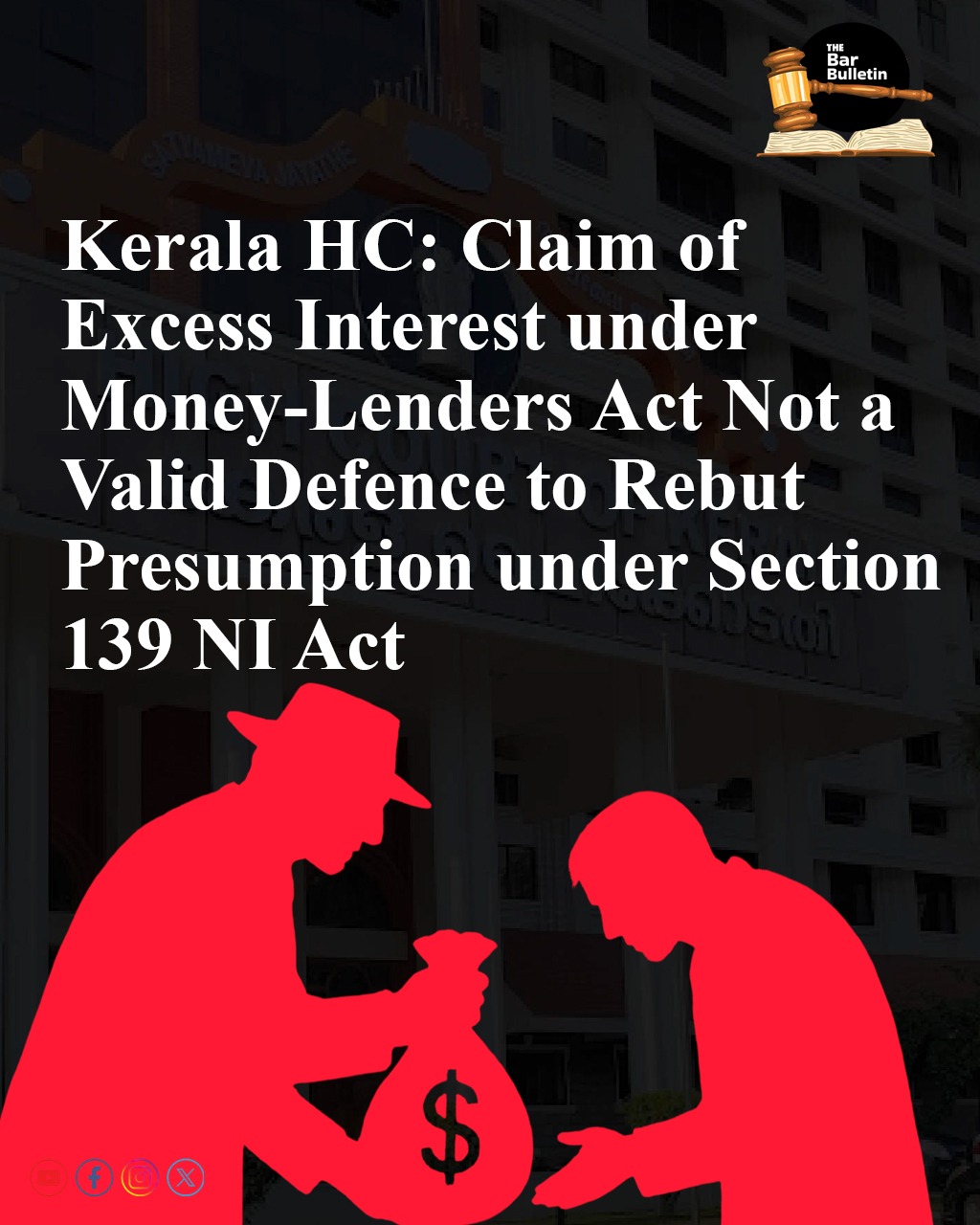Referring to the decision in the case of Nedumpilli Finance Company Limited v. State of Kerala, (2022) 7 SCC 394 where the Supreme Court had ruled that “the entire life of a Non-banking Financial Company (NBFC) from the womb to the tomb is regulated and monitored by the RBI, and the NBFCs regulated in terms of Chapter IIIB of the RBI Act, 1934, cannot be regulated by the Kerala Money-Lenders Act, 1958”, the Kerala High Court declared the argument that the interest claimed by the complainant was excessive and in violation of Kerala Money-Lenders Act 1958, and therefore it was an illegal transaction and for that reason, cheque cannot be treated as a cheque issued in discharge of a legally enforceable debt etc., as untenable.
A Single Judge Bench of Justice M.B. Snehalatha observed that the presumption under Section 139 Negotiable Instruments Act (NI Act) entails an obligation on the Court to presume that the cheque in question was issued by the drawer or accused in discharge of a debt or liability. Of course, it is a rebuttable presumption, and the standard of proof for doing so is that of preponderance of probabilities, which the accused has failed to rebut.
The Bench added that the accused has to lead credible evidence for rebutting the presumptions under Section 118(a) and 139 of the NI Act, and mere denial of the case of the complainant is not sufficient to shift this burden to the complainant. Therefore, finding that the accused had not rebutted the presumption while the complainant had succeeded in establishing that the cheque was issued in discharge of a legally enforceable debt, the Bench upheld the conviction and dismissed the petition.
Briefly, the petitioner had entered into a hire purchase agreement with the respondent NBFC for getting a loan to purchase a vehicle. Since the payment of the loan amount was defaulted, the vehicle was repossessed, and for the balance amount, a cheque was issued. This cheque was dishonoured by the petitioner, and the Trial court found the petitioner guilty of the offence under Section 138 of the NI Act. The petitioner, therefore, approached the High Court contending that the NBFC had charged exorbitant interest in the hire-purchase agreement, which was higher than that permissible under the Money Lenders Act, and thus, the entire transaction was illegal.
Appearances:
Advocates P. Samsudin, K.C. Antony Mathew, and Jithin Lukose, for the Petitioner
Advocates B.S. Suresh Kumar and K.M. Faisal, for the Respondents



